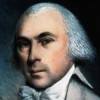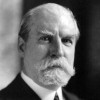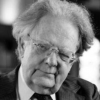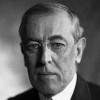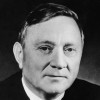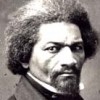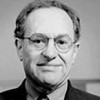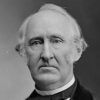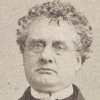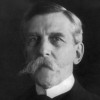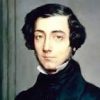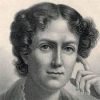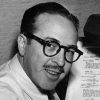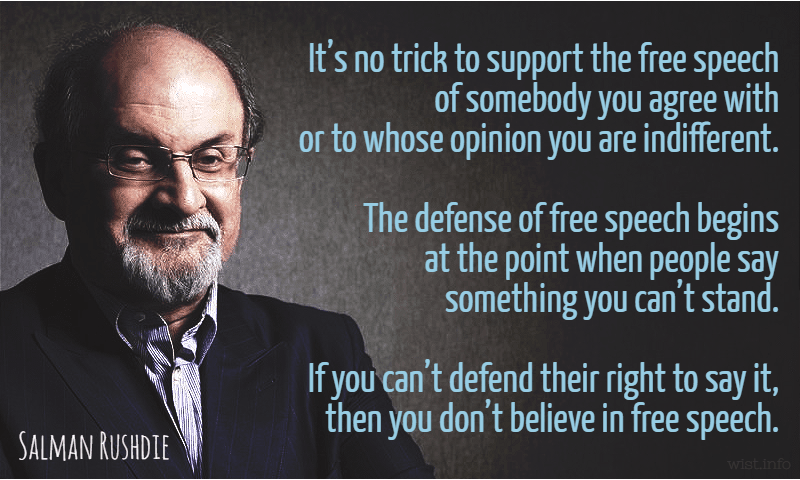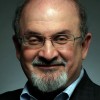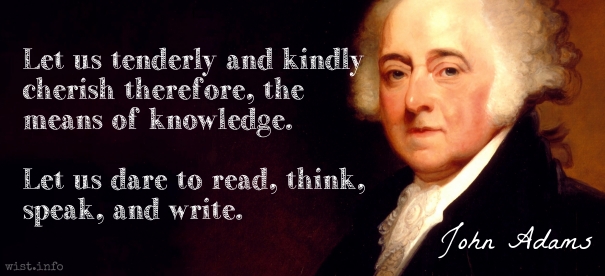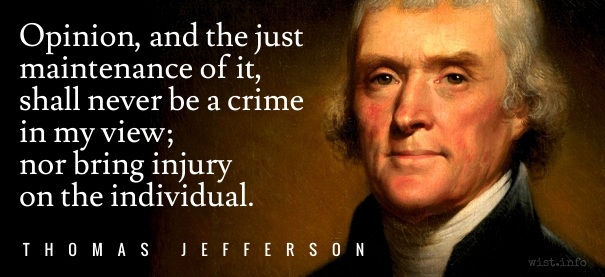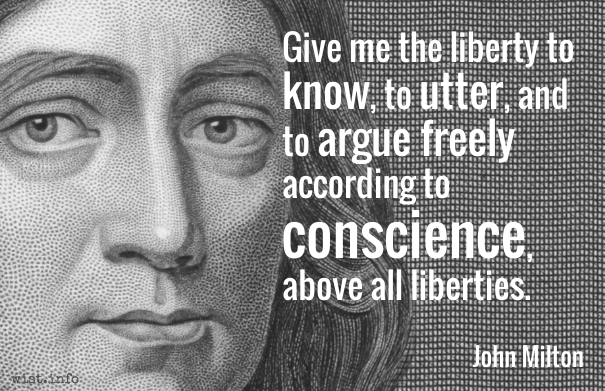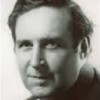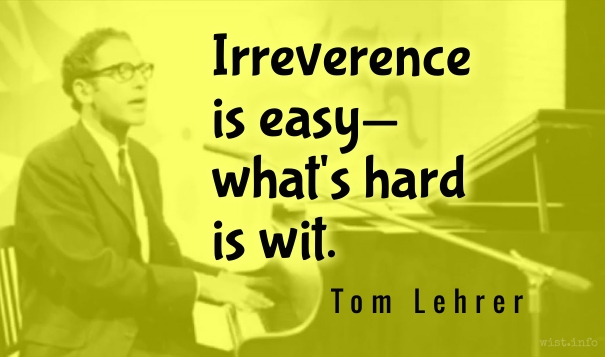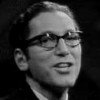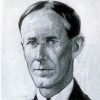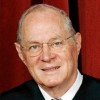The other threat to the security of our tradition, I believe, lies at home. It is the current fear of radical ideas and of people who propound them. I do not agree with extremists of either the left or the right, but I think they should be allowed to speak and to publish, both because they themselves have, and ought to have, rights, and once their rights are gone, the rights of the rest of us are hardly safe.
Jane Jacobs (1916-2006) American-Canadian journalist, author, urban theorist, activist
“No Virtue in Meek Conformity” (1952)
(Source)
Foreword to her response to a State Department Loyalty Security Board interrogatory (1952-03-25). Reprinted in Vital Little Plans (2016).
Quotations about:
freedom of speech
Note not all quotations have been tagged, so Search may find additional quotes on this topic.
It is by the goodness of God that in our country we have those three unspeakably precious things: freedom of speech, freedom of conscience, and the prudence never to exercise either of them.
Mark Twain (1835-1910) American writer [pseud. of Samuel Clemens]
Following the Equator, ch. 20, Epigraph (1897)
(Source)
Cited as from Pudd'nhead Wilson's New Calendar. Sometimes misquoted "... never to practice either."
To whom do you award the right to decide which speech is harmful, or who is the harmful speaker? Or to determine in advance what are the harmful consequences going to be that we know enough about in advance to prevent? To whom would you give this job? To whom are you going to award the task of being the censor? Isn’t a famous old story that the man who has to read all the pornography, in order to decide what’s fit to be passed and what is fit not to be, is the man most likely to become debauched? Did you hear any speaker in the opposition to this motion, eloquent as one of them was, to whom you would delegate the task of deciding for you what you could read? To whom you would give the job of deciding for you — relieve you of the responsibility of hearing what you might have to hear? Do you know anyone? Hands up. Do you know anyone to whom you’d give this job? Does anyone have a nominee?
The civil rights of none shall be abridged on account of religious belief or worship, nor shall any national religion be established, nor shall the full and equal rights of conscience be in any manner, or on any pretext, infringed.
The people shall not be deprived or abridged of their right to speak, to write, or to publish their sentiments; and the freedom of the press, as one of the great bulwarks of liberty, shall be inviolable.
The people shall not be restrained from peaceably assembling and consulting for their common good; nor from applying to the Legislature by petitions, or remonstrances, for redress of their grievances.
James Madison (1751-1836) American statesman, political theorist, US President (1809-17)
Speech Introducing Proposed Constitutional Amendments (1789-06-08)
(Source)
Speech before the House of Representatives, proposing a Bill of Rights amending the US Constitution. This was the first draft of the text that would go on to become the First Amendment.
I find it difficult to see how talk about sex can be placed under the kind of censorship the Court here approves without subjecting our society to more dangers than we can anticipate at the moment. It was to avoid exactly such dangers that the First Amendment was written and adopted. For myself I would follow the course which I believe is required by the First Amendment, that is, recognize that sex at least as much as any other aspect of life is so much a part of our society that its discussion should not be made a crime.
Hugo Black (1886-1971) American politician and jurist, US Supreme Court Justice (1937-71)
Ginzburg v. United States, 383 U.S. 463, 482 (1966) [dissent]
(Source)
The First Amendment is truly the heart of the Bill of Rights. The Framers balanced its freedoms of religion, speech, press, assembly and petition against the needs of a powerful central government, and decided that in those freedoms lies this nation’s only true security. They were not afraid for men to be free. We should not be.
Hugo Black (1886-1971) American politician and jurist, US Supreme Court Justice (1937-71)
James Madison Lecture, NYU School of Law (1960-02-17)
(Source)
The inaugural Madison lecture. Reprinted as "The Bill of Rights," NYU Law Review, Vol. 35 (1960-04).
Since the earliest days, philosophers have dreamed of a country where the mind and spirit of man would be free; where there would be no limits to inquiry; where men would be free to explore the unknown and to challenge the most deeply rooted beliefs and principles. Our First Amendment was a bold effort to adopt this principle — to establish a country with no legal restrictions of any kind upon the subjects people could investigate, discuss, and deny.
Hugo Black (1886-1971) American politician and jurist, US Supreme Court Justice (1937-71)
James Madison Lecture, NYU School of Law (1960-02-17)
(Source)
The inaugural Madison lecture. Reprinted as "The Bill of Rights," NYU Law Review, Vol. 35 (Apr 1960)
History should teach us then, that in times of high emotional excitement minority parties and groups which advocate extremely unpopular social or governmental innovations will always be typed as criminal gangs and attempts will always be made to drive them out. It was knowledge of this fact, and of its great dangers, that caused the Founders of our land to enact the First Amendment as a guarantee that neither Congress nor the people would do anything to hinder or destroy the capacity of individuals and groups to seek converts and votes for any cause, however radical or unpalatable their principles might seem under the accepted notions of the time.
Hugo Black (1886-1971) American politician and jurist, US Supreme Court Justice (1937-71)
Barenblatt v. United States, 360 U.S. 109, 151 (1959) [dissent]
(Source)
Our Constitution assumes that the common sense of the people and their attachment to our country will enable them, after free discussion, to withstand ideas that are wrong. To say that our patriotism must be protected against false ideas by means other than these is, I think, to make a baseless charge. Unless we can rely on these qualities—if, in short, we begin to punish speech — we cannot honestly proclaim ourselves to be a free Nation and we have lost what the Founders of this land risked their lives and their sacred honor to defend.
Hugo Black (1886-1971) American politician and jurist, US Supreme Court Justice (1937-71)
Barenblatt v. United States, 360 U.S. 109, 146 (1959) [dissent]
(Source)
These rights may be abused by using speech or press or assembly in order to incite to violence and crime. The people, through their legislatures may protect themselves against that abuse. But the legislative intervention, can find constitutional justification only by dealing with the abuse. The rights themselves must not be curtailed.The greater the importance of safeguarding the community from incitements to the overthrow of our institutions by force and violence, the more imperative is the need to preserve inviolate the constitutional rights of free speech, free press and free assembly in order to maintain the opportunity for free political discussion, to the end that government may be responsive to the will of the people and that changes, if desired, may be obtained by peaceful means. Therein lies the security of the Republic, the very foundation of constitutional government.
Charles Evans Hughes, Sr. (1862-1948) American statesman, politician, Supreme Court Justice (1910-1916, 1930-1941)
De Jonge v. Oregon, 299 U.S. 353, 364-365 (1937) [majority]
(Source)
The First Amendment means to me, however, that the only constitutional way our Government can preserve itself is to leave its people the fullest possible freedom to praise, criticize or discuss, as they see fit, all governmental policies and to suggest, if they desire, that even its most fundamental postulates are bad and should be changed.
Hugo Black (1886-1971) American politician and jurist, US Supreme Court Justice (1937-71)
Barenblatt v. United States, 360 U.S. 109, 145-46 (1959) [dissent]
(Source)
The very reason for the First Amendment is to make the people of this country free to think, speak, write and worship as they wish, not as the Government commands.
Hugo Black (1886-1971) American politician and jurist, US Supreme Court Justice (1937-71)
Machinists v. Street, 367 U.S. 740, 788 (1961) [dissenting]
(Source)
The case is frequently called "IAM v. Street" (International Association of Machinists).
A nation which, in the name of loyalty or of patriotism or of a sincere and high-sounding idea, discourages criticism and dissent, and puts a premium on acquiescence and conformity, is headed for disaster.
No man shall be compelled to frequent or support any religious worship, place, or ministry whatsoever, nor shall be enforced, restrained, molested, or burthened in his body or goods, nor shall otherwise suffer, on account of his religious opinions or belief; but that all men shall be free to profess, and by argument to maintain, their opinions in matters of religion, and that the same shall in no wise diminish, enlarge, or affect their civil capacities.
Thomas Jefferson (1743-1826) American political philosopher, polymath, statesman, US President (1801-09)
“Virginia Statute for Religious Freedom,” Preamble (1776-06-18; enacted 1786-01-16)
(Source)
We cannot have a society half slave and half free; nor can we have thought half slave and half free. If we create an atmosphere in which men fear to think independently, inquire fearlessly, express themselves freely, we will in the end create the kind of society in which men no longer care to think independently or to inquire fearlessly.
There can be no free speech in a mob: free speech is one thing a mob can’t stand.
Northrop Frye (1912-1991) Canadian literary critic and literary theorist
The Educated Imagination, Talk 6 “The Vocation of Eloquence” (1963)
(Source)
The nature of liberal democracy prevents propagandistic statements from being banned, since among the liberties it permits is the freedom of speech. But since humans have characteristic rational weaknesses and are susceptible to flattery and manipulation, allowing propaganda has a high likelihood of leading to tyranny, and hence to the end of liberal democracy.
Jason Stanley (b. 1969) American philosopher, epistemologist, academic
How Propaganda Works, ch. 1 (2015)
(Source)
I have always been among those who believed that the greatest freedom of speech was the greatest safety, because if a man is a fool, the best thing to do is to encourage him to advertise the fact by speaking. It cannot be so easily discovered if you allow him to remain silent and look wise, but if you let him speak, the secret is out, and the world knows that he is a fool. So it is by the exposure of folly that it is defeated, not by the seclusion of folly, and, in this free air of free speech, men get into that sort of communication with one another which constitutes the basis of all common achievement.
Woodrow Wilson (1856-1924) US President (1913-20), educator, political scientist
Speech, Institute of France, Paris (10 May 1919)
(Source)
Any test that turns on what is offensive to the community’s standards is too loose, too capricious, too destructive of freedom of expression to be squared with the First Amendment. Under that test, juries can censor, suppress, and punish what they don’t like, provided the matter relates to “sexual impurity” or has a tendency “to excite lustful thoughts”. This is community censorship in one of its worst forms. It creates a regime where in the battle between the literati and the Philistines, the Philistines are certain to win.
William O. Douglas (1898-1980) US Supreme Court justice (1939-75)
Roth v. United States, 354 U.S. 476, 512, dissenting opinion (1957)
(Source)
Equally clear is the right to hear. To suppress free speech is a double wrong. It violates the rights of the hearer as well as those of the speaker. It is just as criminal to rob a man of his right to speak and hear as it would be to rob him of his money.
Frederick Douglass (1817-1895) American abolitionist, orator, writer
“A Plea for Freedom of Speech in Boston” (9 Dec 1880)
(Source)
Censorship laws are blunt instruments, not sharp scalpels. Once enacted, they are easily misapplied to merely unpopular or only marginally dangerous speech.
Alan M. Dershowitz (b. 1938) American lawyer, jurist, political commentator
Finding, Framing, and Hanging Jefferson, ch. 15 (2008)
(Source)
As President of our country and Commander-in-Chief of our military, I accept that people are going to call me awful things every day, and I will always defend their right to do so.
Barack Obama (b. 1961) American politician, US President (2009-2017)
Speech, United Nations (25 Sep 2012)
(Source)
Let us believe that the whole of truth can never do harm to the whole of virtue. Trust it. And remember, that, in order to get the whole of truth, you must allow every man, right or wrong, freely to utter his conscience, and protect him in so doing.
Wendell Phillips (1811-1884) American abolitionist, orator, social activist
“The Boston Mob,” speech, Antislavery Meeting, Boston (21 Oct 1855)
(Source)
"On the Twentieth Anniversary of the Mob of October 21, 1835."
The time to assert rights is when they are denied; the men to assert them are those to whom they are denied. The community which dares not protect its humblest and most hated member in the free utterance of his opinions, no matter how false or hateful, is only a gang of slaves.
Wendell Phillips (1811-1884) American abolitionist, orator, social activist
“Mobs and Education,” Speech, Twenty-Eighth Congregational Society, Boston (16 Dec 1860)
(Source)
As reported in the Liberator (21 Dec 1860).
Note: There is a synthetic quotation frequently attributed to Phillips that is a actually combination of this one, and these three others:
No matter whose lips that would speak, they must be free and ungagged. The community which dares not protect its humblest and most hated member in the free utterance of his opinions, no matter how false or hateful, is only a gang of slaves. If there is anything in the universe that can’t stand discussion, let it crack.
While Phillips often reused rhetorical elements (as most orators do), this particular combination appears to be combination not actually found in his speeches or writing.
“The right to think, to know and to utter,” as John Milton said, is the dearest of all liberties. Without this right, there can be no liberty to any people; with it, there can be no slavery.
John A. Andrew (1818-1867) American lawyer, politician, abolitionist
Letter (1860)
(Source)
Letter written after his election as Massachusetts governor. referencing Milton's Areopagitica. Quoted by Wendell Phillips in his "Mobs and Education" speech (16 Dec 1860), and often attributed to Phillips.
Men are educated and the State uplifted by allowing all — every one — to broach all their mistakes and advocate all their errors. The community that will not protect its most ignorant and unpopular member in the free utterance of his opinions, no matter how false or hateful, is only a gang of slaves.
Wendell Phillips (1811-1884) American abolitionist, orator, social activist
“The Scholar in a Republic,” Speech, Centennial Anniversary of the Phi Beta Kapa of Harvard College (30 Jun 1881)
(Source)
Persecution for the expression of opinions seems to me perfectly logical. If you have no doubt of your premises or your power, and want a certain result with all your heart, you naturally express your wishes in law, and sweep away all opposition. To allow opposition by speech seems to indicate that you think the speech impotent, as when a man says that he has squared the circle, or that you do not care wholeheartedly for the result, or that you doubt either your power or your premises.
But when men have realized that time has upset many fighting faiths, they may come to believe even more than they believe the very foundations of their own conduct that the ultimate good desired is better reached by free trade in ideas — that the best test of truth is the power of the thought to get itself accepted in the competition of the market, and that truth is the only ground upon which their wishes safely can be carried out.
That, at any rate, is the theory of our Constitution. It is an experiment, as all life is an experiment. Every year, if not every day, we have to wager our salvation upon some prophecy based upon imperfect knowledge. While that experiment is part of our system, I think that we should be eternally vigilant against attempts to check the expression of opinions that we loathe and believe to be fraught with death, unless they so imminently threaten immediate interference with the lawful and pressing purposes of the law that an immediate check is required to save the country.
Oliver Wendell Holmes, Jr. (1841-1935) American jurist, Supreme Court Justice
Abrams v. United States, 250 U.S. 616 (1919) [dissent]
(Source)
America is therefore a free country, in which, lest anyone be hurt by your remarks, you are not allowed to speak freely of private individuals or of the State; of the citizen or of the authorities; of public or of private undertakings; or, in short, of anything at all, except it be of the climate and the soil; and even then Americans will be found ready to defend either the one or the other, as if they had been contrived by the inhabitants of the country.
Alexis de Tocqueville (1805-1859) French writer, diplomat, politician
Democracy in America, Vol. 1, “Public Spirit in the United States” (1835) [tr. Reeve (1839)]
(Source)
An opinion, right or wrong, can never constitute a moral offense, nor be in itself a moral obligation. It may be mistaken; it may involve an absurdity, or a contradiction. It is a truth; or it is an error: it can never be a crime or a virtue.
Democracy means that people can say what they want to. All the people. It means that they can vote as they wish. All the people. It means that they can worship God in any way they feel right, and that includes Christians and Jews and voodoo doctors as well.
Dalton Trumbo (1905-1976) American screenwriter and novelist [James Dalton Trumbo]
The Remarkable Andrew (1942)
Based on Trumbo's 1941 book of the same name. Parallel text.
It’s no trick to support the free speech of somebody you agree with or to whose opinion you are indifferent. The defense of free speech begins at the point when people say something you can’t stand. If you can’t defend their right to say it, then you don’t believe in free speech.
Salman Rushdie (b. 1947) Indian novelist
“Do we have to fight the battle for the Enlightenment all over again?” The Independent (22 Jan 2005)
(Source)
Let us tenderly and kindly cherish, therefore, the means of knowledge. Let us dare to read, think, speak and write.
John Adams (1735-1826) American lawyer, Founding Father, statesman, US President (1797-1801)
“A Dissertation on the Canon and the Feudal Law” No. 4, Boston Gazette (1765-10-21)
(Source)
I disapprove of what you say, but I will defend to the death your right to say it.
Voltaire (1694-1778) French writer [pseud. of Francois-Marie Arouet]
(Misattributed)
(Source)
The words are not found in any Voltaire and actually belong to historian Evelyn Beatrice Hall, writing as S. G. Tallentyre in The Friends of Voltaire (1906), describing an 1759 incident where Voltaire learned that Claude-Adrien Helvétius' book On the Mind [De l’esprit] had been burned (along with Voltaire's own "On Natural Law") after condemnation by the Paris Parliament and the Sorbonne.‘What a fuss about an omelette!’ he had exclaimed when he heard of the burning. How abominably unjust to persecute a man for such an airy trifle as that! ‘I disapprove of what you say, but I will defend to the death your right to say it,’ was his attitude now.Hall later wrote to a friend that the actual words were her own and ought not to have had quotation marks.
Variations:More information here.
- I wholly disapprove of what you say -- and will defend to the death your right to say it.
- Monsieur l’Abbé, je déteste ce que vous écrivez, mais je donnerais ma vie pour que vous puissiez continuer à écrire.
But opinion, & the just maintenance of it shall never be a crime in my view; nor bring injury on the individual
Thomas Jefferson (1743-1826) American political philosopher, polymath, statesman, US President (1801-09)
Letter to Samuel Adams (29 Mar 1801)
(Source)
Sometimes misattributed to George Washington.
Give me the liberty to know, to utter, and to argue freely according to conscience, above all liberties.
John Milton (1608-1674) English poet
Areopagitica: a Speech for the Liberty of Unlicensed Printing (1644)
(Source)
Thus, if the First Amendment guarantee of freedom of speech and press is to mean anything in this field, it must allow protests even against the moral code that the standard of the day sets for the community. In other words, literature should not be suppressed merely because it offends the moral code of the censor.
William O. Douglas (1898-1980) US Supreme Court justice (1939-75)
Roth v. United States, 354 U.S. 476, 513, dissenting opinion (1957)
(Source)
Alas, irreverence has been subsumed by mere grossness, at least in the so-called mass media. What we have now — to quote myself at my most pretentious — is a nimiety of scurrility with a concomitant exiguity of taste. For example, the freedom (hooray!) to say almost anything you want on television about society’s problems has been co-opted (alas!) by the freedom to talk instead about flatulence, orgasms, genitalia, masturbation, etc., etc., and to replace real comment with pop-culture references and so-called “adult” language. Irreverence is easy — what’s hard is wit.
Whatever may be the immediate gains and losses, the dangers to our safety arising from political suppression are always greater than the dangers to that safety arising from political freedom. Suppression is always foolish. Freedom is always wise. That is the faith, the experimental faith, by which we Americans have undertaken to live. If we, the citizens of today, cannot shake ourselves free from the hysteria which blinds us to that faith, there is little hope for peace and security, either at home or abroad.
They taught me that the truth would make me free but failed to warn me of the kind of trouble I’d get into by trying to tell it — I remain duly grateful.
Margaret Atwood (b. 1939) Canadian writer, literary critic, environmental activist
“Attitude,” Commencement Address, University Of Toronto (14 Jun 1983)
(Source)
The remedy for speech that is false is speech that is true. This is the ordinary course in a free society. The response to the unreasoned is the rational; to the uninformed, the enlightened; to the straight-out lie, the simple truth.
.
I loved coming to the US in 1992, mostly because I loved the idea that freedom of speech was paramount. I still do. With all its faults, the US has Freedom of Speech. The First Amendment states that you can’t be arrested for saying things the government doesn’t like. You can say what you like, write what you like, and know that the remedy to someone saying or writing or showing something that offends you is not to read it, or to speak out against it. I loved that I could read and make my own mind up about something.
Neil Gaiman (b. 1960) British author, screenwriter, fabulist
Blog entry (2008-12-01), “Why defend freedom of icky speech?”
(Source)
The Law is a blunt instrument. It’s not a scalpel. It’s a club. If there is something you consider indefensible, and there is something you consider defensible, and the same laws can take them both out, you are going to find yourself defending the indefensible.
Neil Gaiman (b. 1960) British author, screenwriter, fabulist
Blog entry (2008-12-01), “Why defend freedom of icky speech?”
(Source)
See Dershowitz.
No man ought to be hindered saying or writing what he pleases on the conduct of those who undertake the management of national affairs, in which all are concerned, and therefore have the right to inquire, and to publish their suspicions concerning them. For if you punish the slanderer, you deter the fair inquirer.
James Burgh (1714-1775) British politician and writer
Political Disquisitions, Book 1 “Of Government, briefly” (1774)
(Source)
Liberty is meaningless where the right to utter one’s thoughts and opinions has ceased to exist. That, of all rights, is the dread of tyrants. It is the right which they first of all strike down. They know its power. Thrones, dominions, principalities, and powers, founded in injustice and wrong, are sure to tremble, if men are allowed to reason of righteousness, temperance, and of a judgment to come in their presence.
Frederick Douglass (1817-1895) American abolitionist, orator, writer
“A Plea for Freedom of Speech in Boston,” speech (9 Dec 1860)
(Source)
Everyone is in favor of free speech. Hardly a day passes without its being extolled, but some people’s idea of it is that they are free to say what they like, but if anyone says anything back, that is an outrage.
Winston Churchill (1874-1965) British statesman and author
Debate, House of Commons (13 Oct 1943)
(Source)
More discussion of this quotation: If Anyone Says Anything Back, That Is an Outrage – Quote Investigator.
To preserve the freedom of the human mind, then, and freedom of the press, every spirit should be ready to devote itself to martyrdom; for as long as we may think as we will, and speak as we think, the condition of man will proceed in improvement.
Thomas Jefferson (1743-1826) American political philosopher, polymath, statesman, US President (1801-09)
Letter to William Green Mumford (18 Jun 1799)
(Source)
We believe very strongly on preserving the right to differ in this country, and the right to dissent; and if I have done a good job of anything since I’ve been president, it’s to ensure that there are plenty of dissenters.
Lyndon B. Johnson (1908-1973) American politician, educator, US President (1963-69)
Press Conference (1967-11-17)
(Source)
Video:
Another and more special provision has been made by one of the amendments to the Constitution, which expressly declares, that “Congress shall make no law respecting an establishment of religion, or prohibiting the free exercise thereof, or abridging the freedom of speech, or of the press,” thereby guarding, in the same sentence, and under the same words, the freedom of religion, of speech, and of the press, insomuch that whatever violated either throws down the sanctuary which covers the others, — and that libels, falsehood, and defamation, equally with heresy and false religion, are withheld from the cognizance of federal tribunals.
Thomas Jefferson (1743-1826) American political philosopher, polymath, statesman, US President (1801-09)
“Kentucky Resolutions,” Resolution 3 (1798)
(Source)
In protest of the Alien and Sedition Acts.
Certainly the First Amendment’s language leaves no room for inference that abridgments of speech and press can be made just because they are slight. That Amendment provides, in simple words, that “Congress shall make no law … abridging the freedom of speech, or of the press.” I read “no law … abridging” to mean no law abridging.
Hugo Black (1886-1971) American politician and jurist, US Supreme Court Justice (1937-71)
Smith v. California, 361 U.S. 147, 157 (1959) [concurring]
(Source)
I prefer a man who will burn the flag and then wrap himself in the Constitution to a man who will burn the Constitution and then wrap himself in the flag.
Molly Ivins (1944-2007) American writer, political columnist [Mary Tyler Ivins]
(Misattributed)
(Source)
While this appeared in her regular syndicated column (29 Jun 1997), Ivins was actually quoting a comment previously made by Texas state representative Craig Washington on the floor of the Texas Senate. It is frequently misattributed to Ivins herself.
Variant: "I prefer someone who burns the flag and then wraps themselves up in the Constitution over someone who burns the Constitution and then wraps themselves up in the flag."




